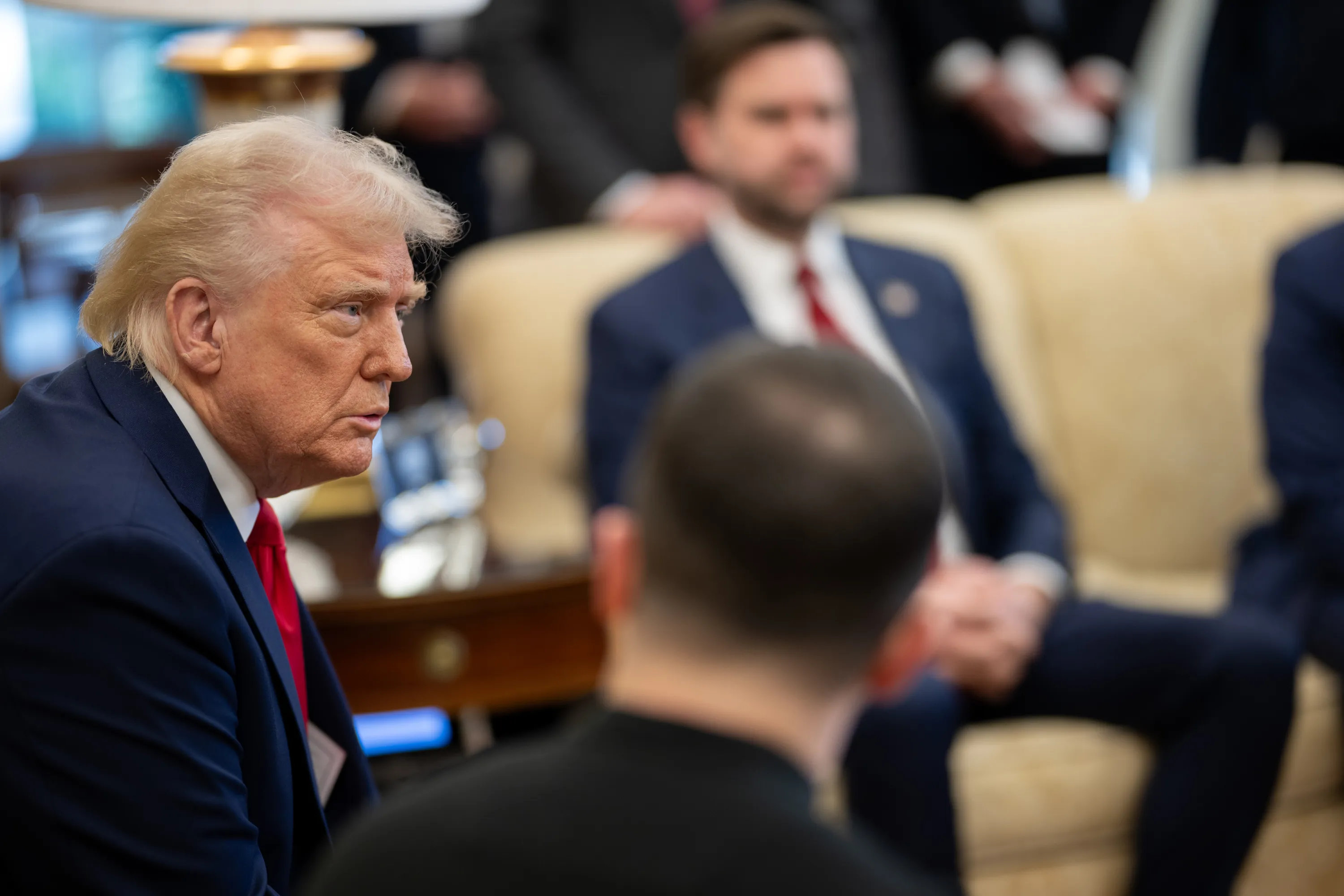.png)
Offscript Weekly: The Destruction Of Words – From Orwell To Trump
From Orwell’s Newspeak to Trump’s tweets, language has morphed - from a tool of clarity to a lever of control. When leaders weaponise words and flatten meaning, even honesty sounds radical. In a world where “ungood” suffices, what’s left of truth?


Ranjana Chauhan is a senior financial journalist. She brings sharp focus on the softer aspects of business and enjoys writing on diverse themes, from the gender lens to travel and sports.
April 14, 2025 at 1:30 PM IST
“It’s a beautiful thing, the destruction of words.”
That’s how Syme, a language specialist in Orwell’s ‘1984’, describes Newspeak, a controlled, simplified version of English that is designed to shrink thought itself. “Why have a word like ‘bad’ when ‘ungood’ will do?” he asks. Strip away nuance. Flatten meaning. Eventually, you flatten dissent.
Donald Trump, of course, wouldn’t say he’s destroying the language. He’d say he is just speaking from the heart. Whether he’s coining gibberish like “covfefe” or “panican”, talks of markets getting “yippy”, banning “woke” terms from official documents, or reversing trade policy because “it just felt right”, Trump’s language often sounds off-the-cuff, even childlike - whimsical at best, chaotic at worst. But that’s exactly what gives it force.
Because in Trump’s world, words don’t just mean what they say; they mean what HE says they mean, much like Humpty Dumpty in ‘Alice in Wonderland’. A slip of the tongue can become law. A stray phrase (and even body language) can swing the markets. And nonsense, or no sense, more often than not, may become the basis for national policy.
This isn’t uniquely American either. Around the world, leaders are redefining communication in their own ways - not to clarify as words should, but to command and manipulate them to serve their purpose.
Take Nepal’s former King Gyanendra. As protests swell across the country calling for a restoration of the monarchy and a return to a Hindu state, the ex-monarch re-emerged not with a manifesto, but with a message soaked in symbolism. “…We gave up our positions and comforts for the people. Sacrifice does not diminish anyone’s dignity, and it should not be seen as weakness,” he said over the weekend. The words were calm, even noble. But beneath them lay a quiet provocation. In a time of political confusion, his rhetoric reframed abdication not as defeat, but as martyrdom. His speech didn’t need to be explicit; it needed to echo. And from different corners.
Meanwhile, in Bangladesh, former Prime Minister Sheikh Hasina chose a blunter instrument. Aimed squarely at Nobel laureate Muhammad Yunus, who currently wields power as chief advisor of the country, her warning cut through diplomatic niceties: “His mask will be torn off soon. He can’t hide forever.” No veils here. Just threat, raw and direct.
This is the new playbook. Leaders are not just weaponising institutions - they are weaponising the language. Words are missiles. Symbols become swords. Every phrase is a front line.
In India, language has stirred hot controversy once again. No Trumpian gibberish here - just threats and hate-filled allegations. Raj Thackeray’s recent Marathi language order for Maharashtra bankers, and Baba Ramdev’s inflammatory “sharbat jihad” comments, exemplify the weaponisation of language.
All of these come at a time when clear communication and building of trust are the call of the day. Ray Dalio joined other top financial leaders in raising an alarm on the global economy in the Trump era, and even went a step further. He warned the US economy could be hurtling towards “something worse” than a recession, pointing to a likeness with the situation of the 1930s. In an interview with NBC News, he flagged risks like financial chaos, social unrest, and even global conflict.
Words are our “most inexhaustible source of magic,” said Dumbledore in ‘Harry Potter & the Deathly Hallows’. They are strung together to create powerful spells - good or bad. But Orwell’s Syme sought to eliminate synonyms, antonyms, and unnecessary words, shrinking the range of expression to eventually strip people of their ability to think, critique, or rise.
In a world where words are twisted to serve agendas, where the “destruction of words” is seen as beautiful, the stakes are higher than ever. Clear, honest communication isn’t just a tool - it’s a lifeline.
With global turmoil rising and economic instability threatening, the ability to trust what leaders say, and the clarity they bring, has never been more critical. Else, we risk more than just confusion. We risk the collapse of the systems that hold the world together.
Power rewrites the script every week. Through Offscript Weekly, Ranjana follows the edits—across parliaments, protests, and backchannels.



